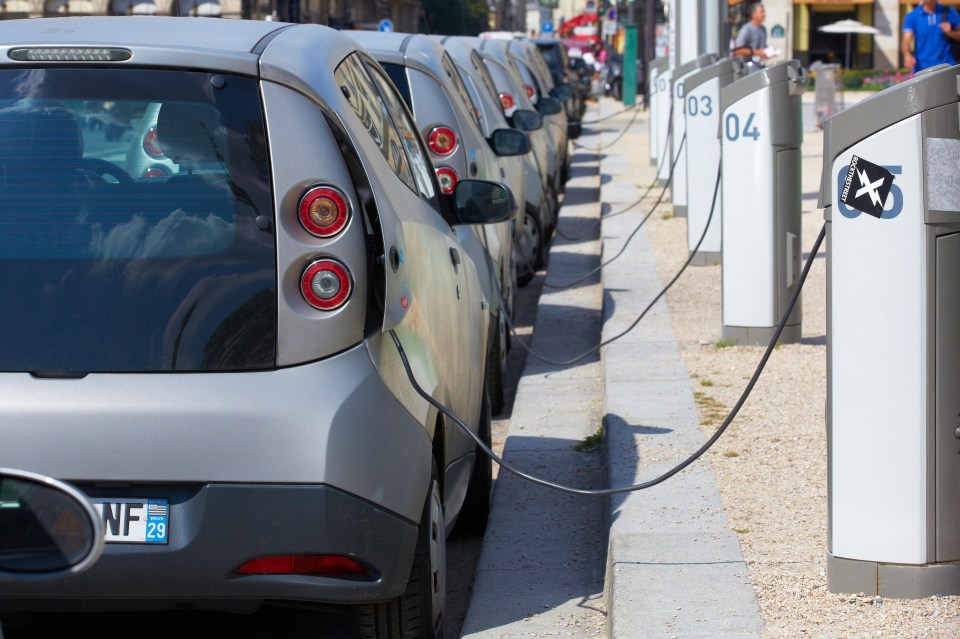Enormous hope rests on electric cars as the solution by the motor industry to climate change. However the batteries of electric cars are not environmentally friendly when manufactured. Several tonnes of carbon dioxide are being released, even before electric batteries leave the factory.
IVL, the Swedish Environment Institute has, on behalf of the Swedish Transport Administration and the Swedish Energy Agency, investigated the climate impact of lithium-ion batteries from a life-cycle perspective. Batteries for electric cars were included in the study. Lisbeth Dahllöf and Mia Romare have produced a meta-analysis, that is, a review and compilation of existing studies.
The report shows that battery manufacturing leads to high CO2 emissions. For each kilowatt-hour storage capacity in the battery, emissions of 150 to 200 kilograms of carbon dioxide equivalent are generated, already in the factory.
The researchers have not studied individual car brand’s batteries, just how they were produced or what electrical mix they used. But to understand the importance of battery size here’s one example: Two standard electric cars on the market, Nissan Leaf and Tesla Model S, have batteries of approximately 30 kWh and 100 kWh respectively.
As soon as you buy the car, CO2 emissions of approximately 5.3 tonnes and 17.5 tonnes, respectively, have been released for batteries of these sizes. The numbers may be difficult to relate to. By way of comparison, a trip for a person returning from Stockholm to New York by air causes emissions of more than 600 kilograms of carbon dioxide, according to the UN organization ICAO’s calculation model.
Another conclusion of the study is that about half of the emissions occur during the production of raw materials and half during the production of the battery in the factory. The mining itself accounts for only a small part of between 10-20 percent.
The calculation is based on the assumption that the electricity mix used by the battery plant is based by more than half by power generated by fossil fuels. In Sweden, power generation predominantly consists of zero-carbon nuclear and hydropower, as a result of which lower emissions can be achieved.
The study also reveals that CO2 emissions rise almost linearly with battery size, even though data is scarcer in this area. This means that a Tesla-size battery contributes more than three times as much CO2 as Nissan Leaf’s battery. It is a result that surprised Mia Romare.
“It should have been less linear because the electronics used do not increase to the same extent. But the battery cells themselves are as influential as the production looks today, she says.
“One conclusion is that you should not drive unnecessarily cars with large batteries,” says Mia Romare
The authors emphasises that a large part of their study was about finding out what data was available and finding out what information they hold. In many cases they found that it was difficult to compare existing studies with each other.
“We have been frustrated, but it is also part of the result,” says Lisbeth Dahllöf.
Mats-Ola Larsson, their colleague at IVL, has calculated how long you need to drive a petrol or diesel car before it has released as much carbon dioxide as an electric car battery. The result was 2.7 years for a battery of the same size as Nissan Leaf and 8.2 years for a battery of Tesla size, based on a series of assumptions.
“It’s great for companies and government to embark on ambitious environmental policies and to buy climate-smart cars. But these results show that one should not think of choosing an electric car with a larger battery than necessary, he says, and points out that politicians should also address this in the design of instruments.
An obvious part to look at in life cycle analyzes is recovery. The authors of the report note that what characterises batteries is the lack of the same as there is no financial incentive to send the batteries for recycling and that the volumes are still small.
Cobalt, nickel and copper are recycled, but not the energy required to make the electrodes, says Mia Romare, pointing out that recycling points are resource conservation rather than carbon dioxide emissions.
Peter Kasche from the Energy Agency, the publishers of the report, stresses the importance of the close relationship between the size of the electric battery and CO2 emissions.
One really needs to make sure to optimise electric batteries. One should not drive around with a lot of kilowatt hours unnecessarily. In some cases, a plug in-hybrid may be the optimum, in other cases a clean battery device.


